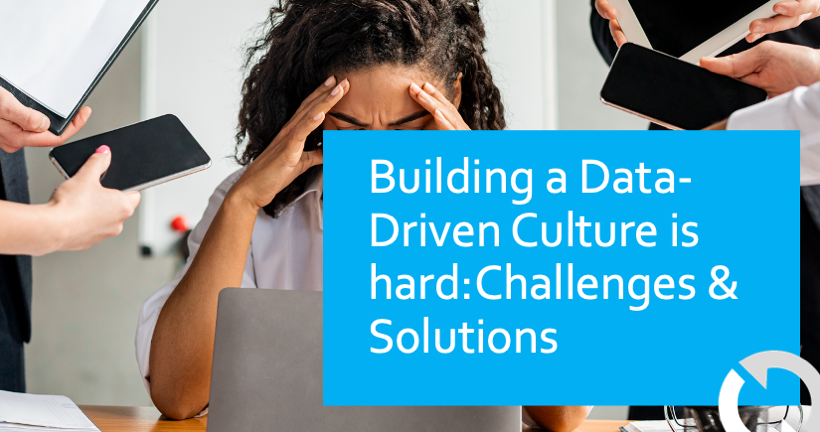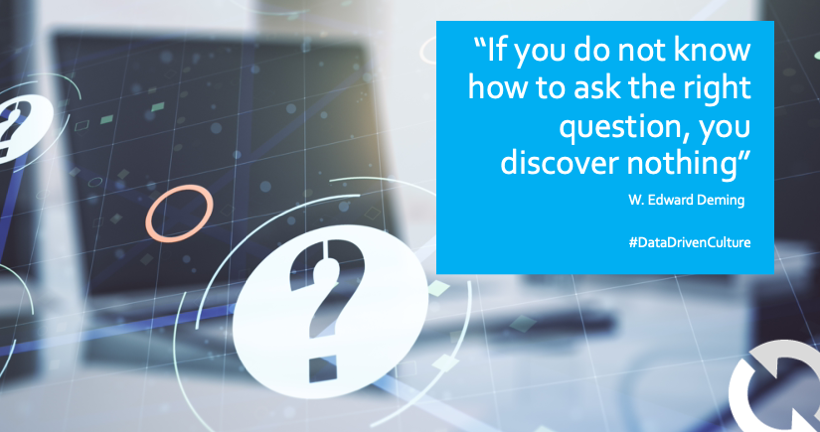Wellbeing managers often find that the biggest challenge in showing successful outcomes isn't the technology or software they use, but rather the organisation's culture. Understanding and gaining support can be tough, but this article aims to help by focusing on how data plays a crucial role in reshaping the way we view and improve organisational culture.

While many individuals have a good grasp of the overarching fix - allocating resources, whether internal or external, to improve employee mindset and how your organisation uses data for valuable insights in business decision-making - it is common for people to get caught up in the details and lose sight of their primary objectives. This can make it difficult to determine how to practically implement these steps.
To understand what it takes to implement a culture shift and encourage a digital mindset, it’s helpful to see how another organisation is actually doing it. Which strategies worked and which were not? Where should you actually start? ReferAll has guided organisations with these essential strategies we've put together below, using our depth of understanding in health referral services to help your services grow and flourish too.
Select data-driven people.
Start with quick wins, such as improving data quality. Unfortunately bad data is the norm. Some may see this as an unusual place to start, but it is important to address the issue of cleaning up data, alongside gaps in data collection. In turn, if data quality is overlooked, it hampers timely analysis, costly decision making, and makes automation ineffective. For example, in a community health scheme, if referral status or attendance data isn't up-to-date, automated workflows will be of no benefit.
How to engage EVERYONE.
Next, it's important to consider how you can engage everyone in the process, fostering a culture that aligns with your objectives and how to put in place the necessary structures to facilitate this transformation. We understand that the term "data" can be intimidating for many individuals. That's why it's beneficial to incorporate a mindset where data is viewed as valuable information within your strategy.
Resistance to change can be a major challenge when implementing new data-driven interventions. Encouraging open communication and involving employees in the decision-making process can help alleviate apprehensions.

Monitoring and Evaluation.
Regular monitoring and evaluation of community health programmes is essential to assess its effectiveness and make data-driven adjustments as needed. This iterative process allows for continuous improvement and better outcomes.
Some employees may perceive the monitoring and evaluation process as a judgment of their performance. Emphasising that it is a learning tool to enhance the programme or service can ease such concerns.
Data Privacy and Ethics.
Maintaining GDPR data privacy and adhering to ethical standards are essential aspects of any data-driven health programme. Ensuring that sensitive information is protected and that data is used responsibly is paramount.
Balancing the usefulness of collecting specific data with privacy concerns can be a delicate task. Training employees on data ethics and implementing robust data security measures can mitigate potential risks.
Conclusion:
Embracing the topic of data with all your team, what the numbers are actually telling you and how to drive-decisions based on data is becoming more of the everyday for many community health programmes. With the right tools, challenges can be overcome, such as data collection, analysis, intervention development, and ethical considerations, the benefits are undeniable. By empowering employees with the necessary skills and fostering a culture that values data-driven decision-making, health and leisure organisations can create sustainable and impactful community health initiatives.
Embracing data-driven solutions will undoubtedly shape the future of community health for the better.
Warm regards,
Rach
Rachel Stokes | Marketing Outreach Lead
P.S. Feel free to ask us anything by starting a conversation: 📲  or 📧
or 📧  us today.
us today.
